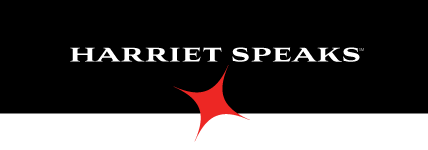Much has been written about Black hair. As of late, the narrative has been complimentary and focused on celebrating those of us who wear so-called “natural hair.” But what hasn’t been said about the topic of Black women’s hair is this: it is really none of anyone else’s business how a Black woman chooses to wear her hair. So to white people and Black men: keep your commentary, assessments, and even your compliments about our hair. You are not here to validate us.
It started this morning. I was minding my business – accompanied by coffee and Facebook. All was right in the world until I saw a post from Channel 4 News (more about them later) that read: “There has been a shift confidence, in awareness, in pride, the confidence that comes from black women embracing themselves. These black women are embracing their natural curls and ditching the chemicals that make their hair straight.” You can see the video here. As with most things in Facebook-land the real stuff goes down in the comments.
The comments consisted primarily of white people offering their opinions, questions, and compliments. Here are some of the comments:
Wow. Perhaps we should feel good now that white folks have had their questions answered and gotten to tell us they approve of our hair choices. Note that it is a hallmark of white privilege that white people assume their opinion on every topic even matters. Of course, in the celebration and validation, there was no discussion of who made Black women’s hair a problem in the first place. This isn’t something that just happened. It was a direct result of racism, white supremacy, and more specifically anti-blackness.
After I got over my incredulousness with the story I then asked, “Who is Channel 4, anyway? Where do they broadcast?” And, “How does an organization that presents as a ‘local, friendly news station’ have 4 million Facebook followers?” I needed to know who Channel 4 was. I channeled my inner Squeak from the “The Color Purple” when she asked, “Harpo, who dis woman?” It turns out that Channel 4 is a “publicly owned, commercially funded UK public service broadcaster” that is committed to “diversity.” That’s all fine and good, but when you visit their website you can see that they have a news team void of Black women. There is not one. Therefore, I fail to see the commitment to diversity. What’s more? You do not get to talk about Black women if you aren’t willing to hire Black women. We are no longer here for your white gaze, to satisfy your curiosity under the guise of compliments, and provide you with the benefit of views and clicks.
I would not want the reader to think this is the only example in which Black women’s hair is the topic of conversation by white media and society at large. A few days ago it was an “obsession” (that was the word used in the title) with Beyoncé wearing her natural hair. There are regular stories of Black girls being sent home from school because of administrative disapproval of their hair. And then there is the 11th Circuit court which effectively ruled a person can be refused employment for wearing their hair in locks.
Before you judge me as someone who just can’t be happy with even a compliment, hear me out. At the end of the day this is a discussion about Black beauty standards. The same people who you give permission to validate you can (at their leisure) choose to invalidate you. The same people who tell you your hair is beautiful today can tell you it is not tomorrow. How this works is if we accept one narrative as true, then we have primed ourselves to accept the other. The best way to get around this truism is to not give power to those who have proven themselves to be fickle and committed to being the arbiters of beauty in the first place. We have seen throughout history that those who decide what is beautiful and what is not act to consistently uphold whiteness as the standard by which all others are measured.
But there is another problem with the incessant discussion of Black hair: this discussion is a continuation of policing Black women’s bodies in unacceptable ways. I searched my brain for an occasion where I have heard of women’s hair of any other race being a topic of public conversation and I found nothing. I have yet to see a news report on what white women are doing with their hair. Why? Because whiteness is normalized. When others appoint themselves as qualified to discuss Black women’s hair it reinforces the notions that Black women are a deviation and there is no choice they can make that must be respected – without question or comment. Whether it is our hair, our bodies (see Sarah Baartman), or even how we dress (remember when traffic reporter Demetria Obilor was publicly shamed for being…gorgeous?), there is always someone ready, waiting to express themselves about the appearance of Black women.
So, on behalf of my Sistahs and me, I have a request of white people (men and women) and Black men: “Please keep discussions of our hair out of your mouth.” Why white people and Black men? Because racism and sexism reinforce one another -- neither is acceptable and Black women are targets of both.
Jyarland Daniels
CEO, Founder – Harriet Speaks
Jyarland Daniels, MBA, JD is CEO & Founder of Harriet Speaks℠, a racial equity and inclusion consultancy, focused on anti-black racism, that offers training, executive coaching, communications, and conflict resolution strategies for non-profits, educational institutions, and corporations. Learn more at harrietspeaks.com.

